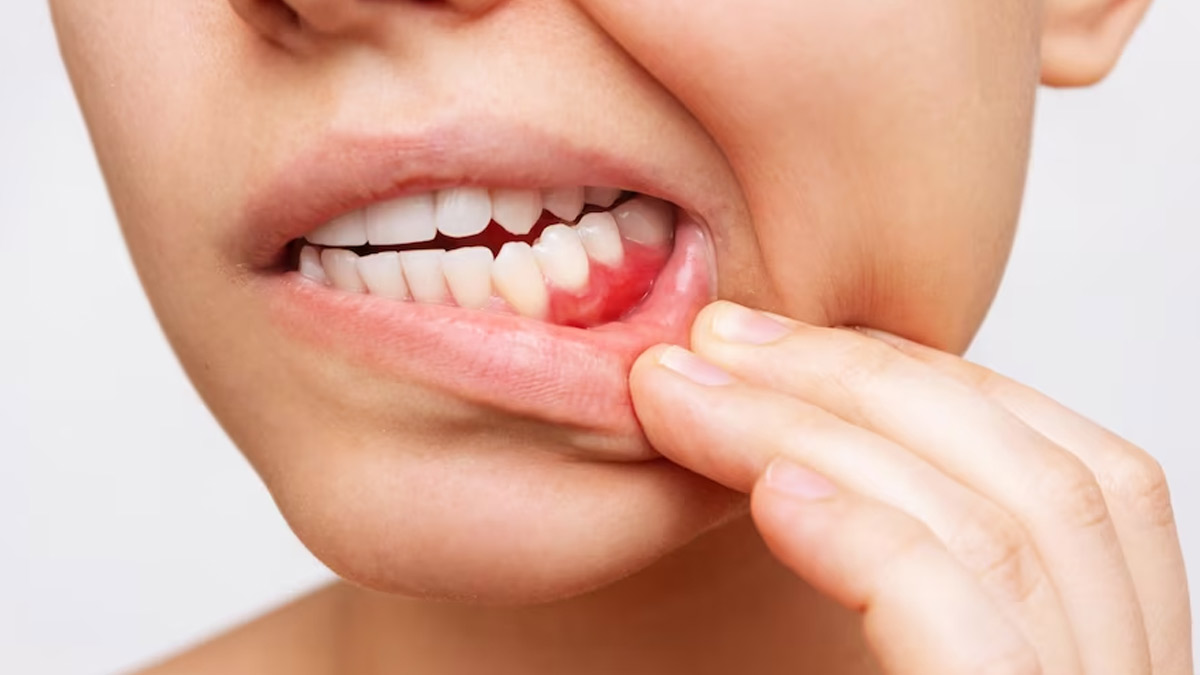
Bleeding gums can occur due to various reasons. Gingivitis, a mild form of gum disease, is one of the most common causes of gum bleeding. However, inadequate levels of vitamin C in the body can also lead to the condition. In fact, a study published in the journal Frontiers in Nutrition suggests vitamin deficiency can cause gum bleeding regardless of oral hygiene.
It is important to note that intense bleeding often indicates scurvy, a disease caused by severe vitamin C deficiency. Sharing her expertise on the subject, Dr Anu Gaikwad, Consultant Diabetologist, Physician, Prof., and HOD Geriatric Medicine, Dr. D.Y. Patil Medical College Hospital and Research Centre, Pimpri, Pune, explained why vitamin C deficiency occurs in the first place and ways to prevent it to reduce the risk of gum bleeding.
Also Read: Mouth Ulcers Could Signal Vitamin B12 Deficiency: Other Oral Signs To Watch Out For
Why Vitamin C Deficiency Causes Bleeding Gums?

Vitamin C, also known as ascorbic acid, is a crucial nutrient required for various bodily functions, including the synthesis of collagen, the absorption of iron, and the maintenance of the immune system, said Dr Gaikwad.
However, inadequate dietary intake, malabsorption disorders, such as Crohn's disease or celiac disease, alcoholism, smoking, infections, surgery, and chronic diseases, can lead to vitamin C deficiency, he added.
Failing to meet your daily vitamin requirements can lead to various issues, including bleeding gums. This happens because vitamin C helps build collagen, a key component of the tissue holding your teeth in place. Without enough vitamin C, this tissue weakens, making your teeth loose and your gums inflamed.
A study published in Nutrition Reviews suggests that current vitamin C recommendations might be too low and that supplementation helped reduce bleeding gums in people with lower vitamin C levels.
Symptoms Other Than Bleeding Gums
Some of the common symptoms of vitamin C deficiency include:
- Fatigue, tiredness, and weakness
- Muscle and joint pain
- Easy and frequent bruising
- Poor healing of wounds
- Skin problems
- Splitting hair
- Nosebleeds
- Weakened immune system
- Tooth loss
Also Read: What Is Vitamin C Deficiency? Causes And Early Symptoms
How To Increase Vitamin C Intake?

Sharing a few tips to increase vitamin C intake, Dr Gaikwad listed:
Incorporate plenty of fruits and vegetables into your diet, such as citrus fruits (oranges, lemons, and grapefruits), strawberries, kiwi, bell peppers, broccoli, and Brussels sprouts.
Enjoy these foods raw or lightly cooked to preserve their vitamin C content.
Consider drinking freshly squeezed orange juice or incorporating vitamin C-rich supplements into your routine if necessary.
Dr Gaikwad concluded by recommending diverse nutrient intake and advising consultation with a healthcare professional for personalised recommendations.
How we keep this article up to date:
We work with experts and keep a close eye on the latest in health and wellness. Whenever there is a new research or helpful information, we update our articles with accurate and useful advice.
Current Version